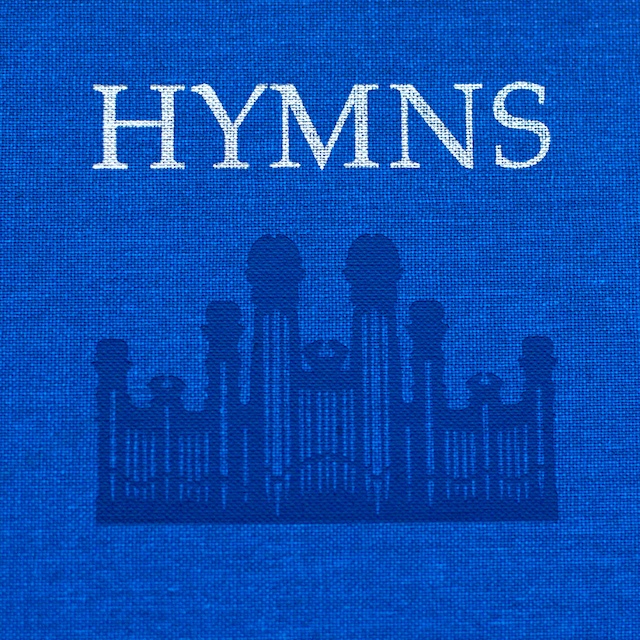I got choked up when I played that sacrament song today. It takes awhile to explain why. But please stay with me as I try.
Our hymnbook has two settings of “‘Tis Sweet to Sing the Matchless Love” (nos. 176 and 177). When I joined the church the hymnbook of the time had only one, the very old pseudo-sea chanty sing-songy version (177) by Ebenezer Beesley. This morning, preparing for sacrament meeting organ duty, I was practicing the “new” one added in the 1985 (current) book: Frank Asper’s tender, heartfelt hymn (176).
But as I practiced, its 1948 copyright date jumped out at me. Asper, I thought, must have written it for the 1948 hymnbook, on whose compilation committee he served. Since that was the hymnbook when I joined the church in 1973, why wasn’t his setting in there?
Or was it?
I went to my hymnbook shelves, where I have three first printing copies of the 1948, three copies of later printings (1950-1977), and the unbound pencil-corrected 1948 edition that was sent to the press for the 1950 edition. (Why do I have that? Frank Asper gave it to the Ricks College library, which didn’t know what to do with it so it gave it to the BYU Library, which didn’t know what to do with it so put it out on a sale table, where I bought it for ten bucks.)
As I leafed through the books today, I saw that the first printing of the 1948 had Asper’s version (as no. 187) and not Beesley’s. Later printings did too, until 1959, when someone (from “above” no doubt) cut Asper’s and put Beesley’s in its place. So for the rest of his life, Frank Asper had to sing and play the inferior version he had prayerfully and skillfully outdone for the hymnbook he helped compile.
The 1985 hymnbook finally gave Asper’s hymn back to us–twelve years after he died. But I choked up as I played it in sacrament meeting today, thinking of the disappointment Asper must have felt each time he played or sang the Beesley version from 1959 till 1973, always knowing that his finer, more elegant music had been overruled in favor of a simpler, catchier–but lesser–version of two generations earlier.
I thought, too, of the grace of redemption, that someone finally thought to ask: why not both? There’s always room.


Thank you for this sweet story. Frank Asper was a friend of my family, and I knew his son Frank when we were both teen-age aspiring musicians. I remember them both as gentle gracious men.
Very moving–thank you for posting it.